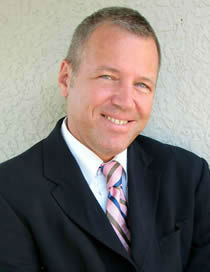
Spirituality
And such is the utter and complete hypocrisy of Hollywood.

Pakaluk
You would not have thought that accountants could be turned into vicious killers. Aren't they the guys who figure out which depreciation table you should use for your car, or how to apply a homebuyer tax credit?
Yet, there it is -- a movie produced in Hollywood, called "The Accountant," in which the protagonist, when not studying spreadsheets, is hauling around a trunk-load of serious automatic weapons and mercilessly killing hundreds of people.
It is one of those movies where the director revels in the sound of the clips of bullets clicking through the rifle and the shells falling and bouncing on the floor. The killer is portrayed as strong and tough because he can handle such heavy, destructive weapons. You hear the sounds of tearing flesh and see the bursting skulls as bullets pass through them.
"The Accountant" is a formulaic movie. It takes a well-known Hollywood movie type, and creates some dramatic surprise by imposing it upon an unlikely character. We know that type very well: the distant, emotionless, machine-like, utterly efficient killer, with his stockade of powerful weapons.
In the old days, it was important that that type be doing battle with bad guys. In "True Lies" (1994) the wife, Helen, asks the Schwarzenegger character, with fear, when she realizes he might be that type, "Have you ever killed anyone?" And Harry replies, assuringly, "Yeah, but all of them were bad." But in today's films, no one feels the need to ask if the victims are bad. They are killed: that is all we need to know.
The protagonist in "The Accountant" is slightly deranged. He is described as autistic, because he is supposed to be clever in reading spreadsheets but psychopathic in killing people -- a slander against the autistic. But I suppose "autistic-killer" is meant to be as curious a hook as "killer-accountant."
However, the deranged killers in most Hollywood pictures are not suffering from any diagnosable psychiatric illness. They are simply malevolently, unaccountably, creepily, uncontrollably deranged. The more irrational the evil, the more frivolous, the less subject to reason or conventions, the better. No human motives explain why these killers kill.
True, some of them are not even human, like "It," who tears limbs from children for the fun of it. Is the Joker human? Consider some of his choice lines, "Smile, because it confuses people. Smile, because it's easier than explaining what is killing you inside." "As you know, madness is like gravity ... all it takes is a little push." "Do I really look like a guy with a plan? You know what I am? I'm a dog chasing cars."
"A census taker once tried to test me," Hannibal Lecter quips, "I ate his liver with some fava beans and a nice chianti."
The psychopath in "No Country for Old Men" combines in himself the uncontrollability of Chance and inevitability of Necessity, which, he says, governs the world:
Carla Jean Moss: "The coin don't have no say. It's just you."
Anton Chigurh: "Well, I got here the same way the coin did."
Paul Spector in "The Fall" at least is more understandable, as a Nietzschean: "He came into the room, I was strangling his sister. Armed with a heavy piece of wood the best he could muster was a blow across the back. What kind of bourgeois nonsense, the influence of parents, teachers, the church, police officers, contrives to make you incapable of crushing another man's skull, even to save your sister!"
I don't want to disgust you with further examples. You'll agree they are innumerable and point to another type, which used to be rare in films, but now is center stage: the puzzlingly appealing and quasi-heroic psychopath. This is the character Hollywood seems to understand and like best. Not a cheerful Father O'Malley, not a handsome and intelligent Roger Thornhill, not and idealistic George Baileys -- but a depraved monster like The Joker.
Now simply combine the one type, armed with his trunk-load of heavy weapons, with the other type, bringing chaos and destruction, and what do you have? You have, not another cheap movie, but someone from real life, Stephen Paddock, the certified public accountant who, with utmost efficiency, and apparently no human motive, shot bullets into hundreds in Las Vegas last week.
Now consider that Hollywood will not show anyone smoking in films, because that example may tend to encourage smoking.
But imagine that film, after film, after film was about smoking, many packs of cigarettes each day -- and all the heroes and heroines smoked -- and all the most interesting characters were smokers. And then, imagine that some study came out, proving that smoking caused lung cancer. And suppose Hollywood's response was to say -- we must make matches and lighters illegal!
To make the analogy correct, we must say "matches and lighters," not "cigarettes and cigars," because guns actually have a good use. So, to have a correct analogy, we must look for some instrument used for smoking, which has a good use as well as a bad use.
And such is the utter and complete hypocrisy of Hollywood. This hypocrisy was made even more painfully clear by the revelations this week about pitiable Harvey Weinstein, and Hollywood's complicity for many decades -- while they were preaching to everyone else.
Hypocrisy spreads; hypocrisy has no good influence. It has no moral force. It reverses good and bad. Our Lord warned us about it.
- Michael Pakaluk is Professor of Ethics and Social Philosophy in the Busch School of Business at The Catholic University of America. His book on the gospel of Mark, ‘‘The Memoirs of St. Peter,’’ is available from Regnery Gateway.
Recent articles in the Spirituality section
-
He saw the cloths and believedBishop Robert Barron
-
God's instrument for viewing the crucifixionMichael Pakaluk
-
QuinquagesimaMichael Pakaluk
-
Pro-life Christians: Now is the time to shout from the rooftopsBishop Robert Barron
-
Seeking an indulgence as an act of faithMichael Pakaluk


















